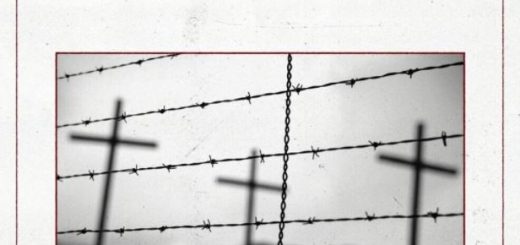Smoke Signals by Phoebe Bridgers Lyrics Meaning – Unraveling The Shrouded Sentiments in Striking Verse
Lyrics
And we spent a week in the cold
Just long enough to Walden it with you
Any longer, it would’ve got old
Singin’ “Ace of Spades” when Lemmy died
But nothing’s changed, L.A.’s alright
I’m sleepin’ in my bed again
And gettin’ in my head and then
Walk around the reservoir
You
You must’ve been lookin’ for me
Sendin’ smoke signals
Pelicans circling
Burnin’ trash out on the beach
One of your eyes is always half-shut
Somethin’ happened when you were a kid
I didn’t know you then and I’ll never understand
Why it feels like I did
“How Soon Is Now” in an eighties sedan
You slept inside of it because your dad
Lived in a campground in the back of a van
You said that song’ll creep you out until you’re dead
And you
Must’ve been lookin’ for me
Sendin’ smoke signals
Pelicans circling
Burnin’ trash out on the beach
I wanna live at the Holiday Inn
Where somebody else makes the bed
We’ll watch TV while the lights on the street
Put all the stars to death
It’s been on my mind since Bowie died
Just checking out to hide from life
And all of our problems, I’m gonna solve ’em
With you ridin’ shotgun
Speeding ’cause fuck the cops
And you
You must’ve been lookin’ for me
Sendin’ smoke signals
Pelicans circling
Burnin’ trash out on the beach
Mm-mm
I buried a hatchet, it’s comin’ up lavender
The future’s unwritten, the past is a corridor
I’m at the exit, lookin’ back through the hall
You are anonymous, I am a concrete wall
Phoebe Bridgers, with her haunting voice and profound lyricism in ‘Smoke Signals,’ crafts a narrative bristling with introspective moments and a melancholic nostalgia. The song, which floats like a ghostly dirge, captures the essence of longing and retrospection, encased in contemporary references and personal anecdotes. It’s a masterful blend of the personal and the universal, inviting listeners into a deep, pensive state. As we peel back the layers, we find there’s more to this indie-folk ballad than meets the ear.
The aptly titled track, Smoke Signals, serves as a metaphor for communication that’s both primal and earnest, spanning through the skies of Bridgers’ lyrical landscape. It invites a close examination, not just of the words sung, but also of the spaces between—a silent symphony where much of its meaning resonates.
The Elegy of Lost Icons: Bridgers’ Ode to the Fallen
In a touching homage, ‘Smoke Signals’ references the loss of Lemmy Kilmister and David Bowie, potent figures that have left an indelible mark on Bridgers and the music world at large. The mentioning of ‘Ace of Spades’ and Bowie’s demise is not just forlorn remembrance; it is a stark reminder of our own mortality and the fleeting nature of life. Through these icons, Bridgers communes with the shared collective mourning of a generation, while also confronting the impact these figures have on her individual artistic journey.
The song becomes a memorial, not only for the artists who have passed but also for the innocence and past selves left in the wake of their departures. It probes the listener to consider who they become when their heroes are no longer a tuneful escape but a somber footnote in life’s larger narrative.
A Dive into the Psyche: Facing the Past with Melody
Bridgers’ lyrics escort us through scenes of childhood and formative experiences—both hers and those of an unnamed ‘you.’ The song sets a stage where personal history is unfurled, dealing with the weight of one’s upbringing and the formative scars that shape who we become. An eye ‘always half-shut’ bespeaks a defensive measure, a guard cast over vulnerability borne from a troubled event.
This theme of confronting the past, using music as a vehicle (‘How Soon Is Now’ playing in an ‘eighties sedan’), turns the act of remembering into a sprig of lavender—something beautiful emerging from a seed sown in darker soils. Bridgers’ gift lies in her ability to transmute these experiences into a melodic healing, an aural balm for herself and her listeners.
Lovers in Escapism: The Romance of Disillusionment
Part confessional and part daydream, ‘Smoke Signals’ touches on the romantic ideal of escape. The desire to ‘live at the Holiday Inn’ hints at a longing for life simplified, where the mundane is managed by others, and existence is distilled to pure, unbothered being. Bridgers and her companion become runaway soulmates, fleeing from responsibilities (‘checking out to hide from life’) and authority (‘speeding ’cause fuck the cops’).
This notion of escape is multi-faceted; it’s an escape from convention, an escape from the past, and an escape into a shared future. The act of ‘sending smoke signals’ denotes an attempt to reach out, to communicate across the vast emotional and physical landscapes that separate us—from ourselves, from each other, from who we were, and from who we might become.
‘Pelicans circling, Burnin’ trash on the beach’: The Vivid Language of Disarray
The scenes painted by Bridgers are vivid yet tinged with a sense of ruin, a symbolic choice that illustrates the chaos we must navigate within our psyches. Pelicans—usually symbols of abundance—circle overhead, a natural idyll marred by the burning trash below, representing the destruction humans wreak, even in places of beauty.
This powerful imagery not only grounds the song in a physical locale but also mirrors the internal turmoil of its characters. The interplay between beauty and decay in these lines signals a complex understanding of the world; a dichotomous stage on which our dramas unfold, painted by Bridgers with deft strokes of poetic brilliance.
The Secret Pulse Within: Unearthing the Hidden Message
‘Smoke Signals’ is a tapestry woven with intricate motifs, each stanza a thread contributing to the overall elegance and sorrow of the narrative. One crucial hidden message is the act of letting go, symbolized by ‘burying a hatchet’—a direct reference to making peace with the past and ‘coming up lavender,’ a renewal rising from that peace.
This hatchet-burying calls upon the imagery of a corridor leading to an exit. It suggests a journey through memory’s halls and the choosing to exit rather than remain ensnared in its web. Closure becomes the final, silent protagonist of the song, as Bridgers positions herself against a ‘concrete wall’—resolute, enduring, and ultimately, a protective barrier for the experiences and people she cherishes.








